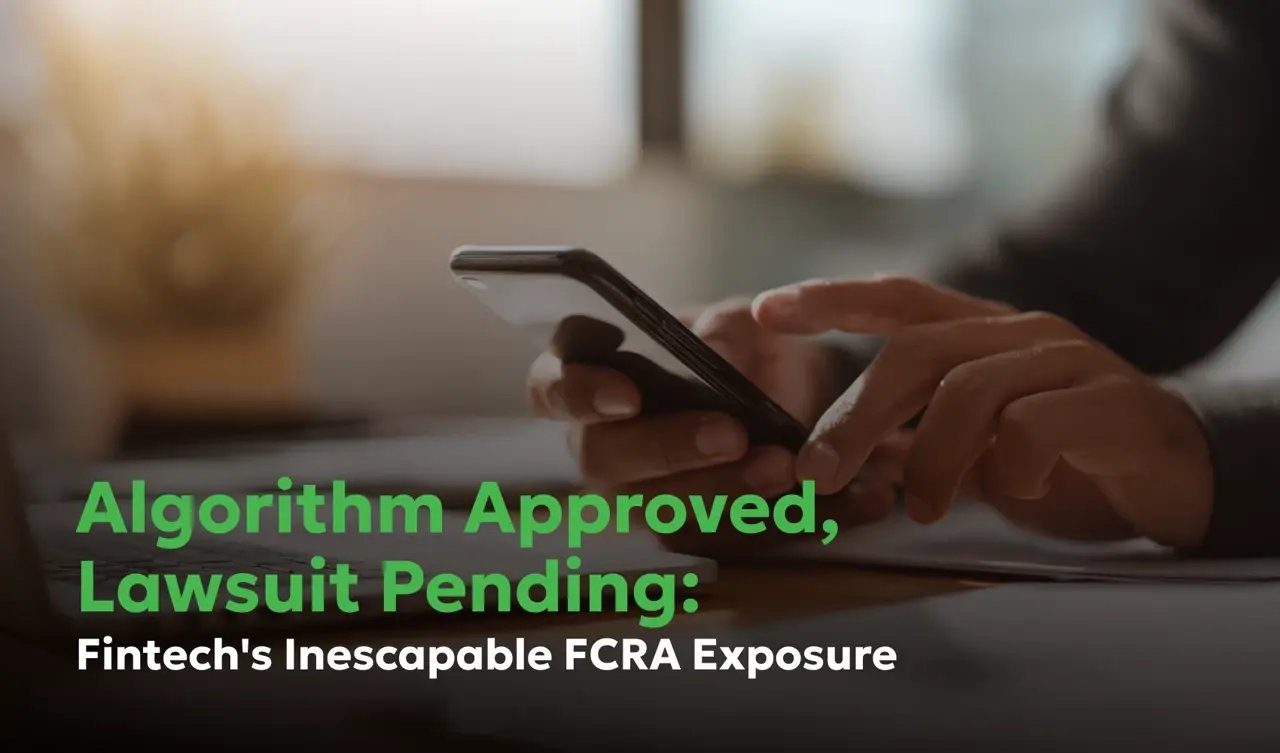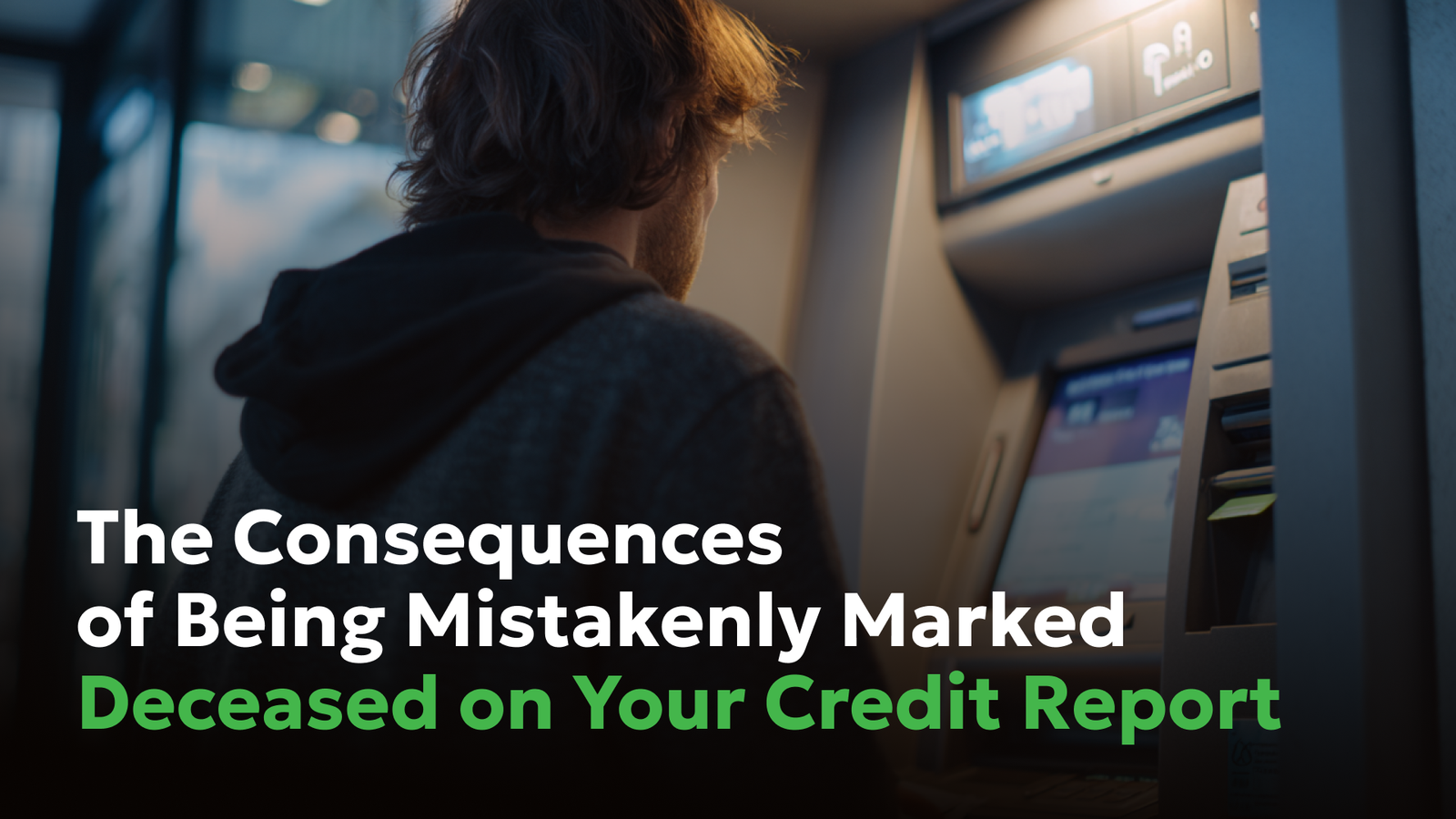Credit Report Mistakes Are More Common Than You Think - And They Could Be Costing You
- Our Practice Areas
Credit Reporting Errors

Credit Reports: Essential to Modern Life - and Why Errors Are So Dangerous
In today’s world, credit reports have become a fundamental part of life. Whether you're applying for a mortgage, renting an apartment, securing employment, or even setting up utilities, someone is checking your credit. Far beyond just borrowing money, your credit profile now acts as a passport to full participation in modern economic life.
However, this widespread reliance also makes credit reports incredibly dangerous when errors occur. Unlike occasional clerical mistakes in isolated systems, credit report inaccuracies have the power to block critical opportunities, derail careers, and tarnish reputations overnight.
The scale of this system is staggering: according to industry estimates, over 36 billion consumer credit reports are generated each year in the United States alone. With this massive volume of data being collected, updated, and shared, even a tiny error rate translates into millions of consumers being harmed annually.
Each year, millions of Americans experience problems with their credit reports. According to the Federal Trade Commission (FTC), approximately 25% of consumers identified errors on their credit reports that could affect their scores. Worse yet, 1 in 5 consumers had an error that was significant enough to materially impact their ability to obtain credit.
Adding to the concern, credit report disputes are the number one source of complaints to the Consumer Financial Protection Bureau (CFPB), with over 500,000 consumer reporting complaints filed in 2022 alone. The impact of these errors costs Americans billions each year in lost opportunities and elevated borrowing costs.
Given how deeply credit reports are woven into daily life, the stakes have never been higher. A mistake on your report isn't a minor inconvenience - it can impact your housing, employment, insurance costs, and financial future. That's why at Consumer Attorneys we fight to correct the mistakes on credit reports and hold credit reporting agencies (CRAs) and furnishers accountable under the Fair Credit Reporting Act (FCRA).
Understanding the different types of credit report errors is key to protecting your financial wellbeing. Here are three major types we handle:
Inaccurate Information: When the Facts Are Simply Wrong
Inaccurate information is the most common type of credit report error. This occurs when the data reported about you is incorrect or outdated. Examples include:
- Paid debts reported as unpaid
- Incorrect account balances
- Wrong account statuses (e.g., a closed account showing as open)
- Duplicate listings of the same debt
- Misreported late payments
These inaccuracies don't just tarnish your credit score - they can prevent you from qualifying for life essentials like loans, apartments, insurance policies, and even jobs.
In fact, a Consumer Reports study in 2021 found that 34% of consumers who reviewed their credit reports discovered at least one mistake. Despite the critical importance of credit accuracy, correcting these mistakes can often be a frustrating and slow process for consumers forced to deal with unresponsive CRAs or stubborn furnishers.
Moreover, studies show that only about 20% of consumer disputes lead to a meaningful correction. Many credit bureaus rely heavily on automated systems like "e-OSCAR," which frequently shortcut real investigations, leaving consumers with unresolved errors.
In January 2025, the U.S. Consumer Financial Protection Bureau (CFPB) fined Equifax $15 million for mishandling consumer credit report disputes. The CFPB found that Equifax ignored consumer-provided documents and evidence in their disputes, allowed inaccuracies to reappear on credit reports, and used faulty software, all contributing to inaccurate credit scores. This settlement includes a $15 million payment to the CFPB's victim relief fund and mandates improvements to Equifax's dispute resolution processes.
Under the FCRA, you have the right to a fair and accurate credit report. If a CRA or a data furnisher fails to investigate or correct a disputed inaccuracy, you may be entitled to financial compensation.
Mixed Identity: When Someone Else's Credit History Hurts You
Mixed identity, also called a "mixed file," happens when the credit information of two or more individuals gets combined into a single report. This usually occurs because of:
- Similar names (e.g., John A. Smith and John B. Smith)
- Shared addresses
- Social Security number transposition errors
Mixed identity cases are particularly damaging because they can cause serious, lasting harm. You may find accounts you never opened, delinquent debts you never owed, or bankruptcies that don’t belong to you listed on your report.
A 2015 report by the Consumer Financial Protection Bureau (CFPB) found that mixed files accounted for a significant portion of credit report disputes. Credit bureaus have historically acknowledged that mixed files are among the most challenging errors to detect and correct without legal intervention.
Disturbingly, studies indicate that Hispanic and Black consumers are disproportionately affected by mixed file errors due to naming conventions and systemic biases in data-matching algorithms.
Unfortunately, when a mixed file is discovered, victims often endure months - or even years - of difficulty in clearing their names. Meanwhile, their creditworthiness remains unfairly damaged.
If you've been impacted by a mixed identity error, the FCRA empowers you to dispute and seek remedies. Our team ensures that CRAs properly investigate, separate the mixed information, and fix your credit file - or face legal consequences if they don’t.
Deceased Notation: When You're Incorrectly Declared Dead
One of the most devastating types of credit report errors is the "deceased notation." This happens when a credit reporting agency or creditor mistakenly flags a living consumer as deceased.
When this occurs, your active credit accounts may be closed immediately, leaving you unable to use credit cards, secure loans, rent housing, or pass employment background checks. Alarmingly, once your credit file is marked "deceased," many automated systems stop updating your accounts, leading to rapid deterioration of your credit profile.
Deceased notations often arise from data mix-ups between Social Security Administration records and credit bureaus, or from clerical errors by creditors.
- According to a 2013 Office of the Inspector General (OIG) report, approximately 9,000 living individuals were erroneously marked as deceased by the Social Security Administration every year.
- These errors often cascade into the credit reporting system, affecting the victims for years.
Unfortunately, when consumers try to correct these errors, they often encounter immense bureaucracy and indifference. CRAs sometimes require absurd levels of proof - like live notarized declarations - even after being shown government IDs and active credit use.
At Consumer Attorneys, we take these cases seriously. Being wrongly declared dead isn’t just an inconvenience - it's a violation of your legal rights, and we know how to fight aggressively for compensation and permanent corrections.
Why These Errors Happen
Despite being entrusted with managing billions of data points about American consumers, CRAs are not infallible. Mistakes are often caused by:
- Automated systems and matching algorithms that prioritize speed over accuracy.
- Human data entry errors.
- Inadequate dispute investigation processes.
- Failure to correct mistakes after legitimate consumer disputes.
Given the volume of information CRAs process, errors are statistically inevitable - but that doesn't excuse negligence. Under the FCRA, credit reporting agencies must maintain reasonable procedures to ensure maximum possible accuracy. When they fail to do so, consumers have the right to take action.
In September 2024, Equifax was hit with a class action lawsuit alleging that the company violated the Fair Credit Reporting Act (FCRA) by failing to conduct proper investigations into consumer disputes. The lawsuit claims that Equifax neglected to thoroughly investigate disputes, ignored evidence provided by consumers, and allowed inaccuracies to remain on credit reports, thereby harming consumers' creditworthiness. The plaintiffs argue that Equifax's inadequate dispute resolution processes led to financial and reputational damage for affected individuals.
This legal action underscores the critical importance of credit reporting agencies adhering to FCRA requirements, especially concerning the investigation and correction of disputed information. Consumers rely on accurate credit reports for access to housing, employment, and financial services, making the integrity of these reports paramount.
Criticism of credit scoring systems in the United States
- Higher Dispute Rates in Minority Neighborhoods: A 2021 report by the Consumer Financial Protection Bureau (CFPB) found that consumers residing in majority Black neighborhoods were more than twice as likely to file credit report disputes compared to those in majority white areas. Similarly, consumers in majority Hispanic neighborhoods also had elevated dispute rates.
- Prevalence of Credit Report Errors: A Consumer Reports survey revealed that 26% of Black adults who had ever checked their credit reports found errors, compared to 14% of Hispanic adults.
- Medical Debt Disparities: The CFPB reported that 28% of Black consumers and 22% of Hispanic consumers have medical debt on their credit reports, compared to 17% of white consumers.
- Lower Average Credit Scores: Studies have consistently shown that minority individuals, particularly Black and Hispanic communities, tend to have lower credit scores compared to their white counterparts.
These disparities highlight systemic issues in the credit reporting system that disproportionately impact minority communities, leading to challenges in accessing credit, housing, employment, and other essential services. Wikipedia.
Your Rights Under the Fair Credit Reporting Act (FCRA)
The FCRA grants you strong protections, including the right to:
- Access your credit reports for free once per year through AnnualCreditReport.com.
- Dispute inaccurate, incomplete, or unverifiable information.
- Have CRAs conduct a reasonable investigation within 30 days.
- Sue CRAs, furnishers, or both for failure to correct mistakes, and recover statutory or actual damages, attorney’s fees, and in some cases, punitive damages.
Correcting errors is not just about setting the record straight. It’s about preserving your financial security, maintaining your access to credit and housing, and protecting your personal dignity.
While consumers are allowed to dispute errors themselves, doing so without experienced legal support often leads to incomplete investigations and unresolved inaccuracies. Worse, self-disputes rarely result in any financial compensation for the harm caused. Credit reporting agencies are more likely to take your claims seriously when a consumer attorney is involved - and with our guidance, you not only have a better chance of fixing the errors but also of recovering damages you are legally entitled to.
How Consumer Attorneys Can Help
When it comes to fixing credit report errors, fast action is crucial - and experience matters. Evidence must be preserved, disputes must be carefully crafted, and the right strategy must be deployed to protect your legal rights. That's where Consumer Attorneys steps in.
Our firm specializes in representing individuals harmed by inaccurate credit reporting. We provide:
- Comprehensive Credit Review: We meticulously analyze your credit reports to identify inaccuracies, mixed files, and wrongful deceased notations.
- Strategic Dispute Preparation: We build strong, evidence-backed dispute letters and documentation packets that are designed to hold credit bureaus and furnishers accountable.
- Aggressive Legal Action: If the dispute process fails, we don't hesitate. We litigate against negligent credit reporting agencies and furnishers to enforce your rights and seek financial compensation.
Importantly, we operate under the FCRA's fee-shifting provisions, meaning we fight to have the companies that violated your rights pay your legal fees - not you.
Don’t let a credit reporting error control your future. Contact Consumer Attorneys today for a free consultation - and let us help you correct the record, defend your rights, and restore the financial freedom you deserve.
Frequently Asked Questions
Before contacting a lawyer, gather copies of your credit reports, highlight the inaccuracies, and document any disputes you’ve filed with the credit bureaus.
Depending on the complexity, resolving credit report disputes can take anywhere from a few weeks to several months, especially if legal action is required.
You may recover actual damages (like lost job opportunities or emotional distress), statutory damages (up to $1,000 per violation), punitive damages, and attorney fees.
While you can dispute errors yourself, hiring an attorney often results in a faster, more effective resolution, especially if the bureau initially refuses to correct the mistake.
If a credit bureau ignores your dispute or fails to correct inaccurate information, you can sue them under the FCRA with the help of a specialized attorney.
Related Articles




R
ONGS™You pay nothing. The law makes them pay.
















